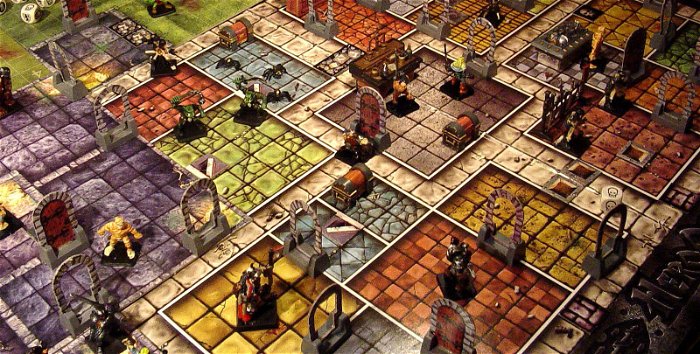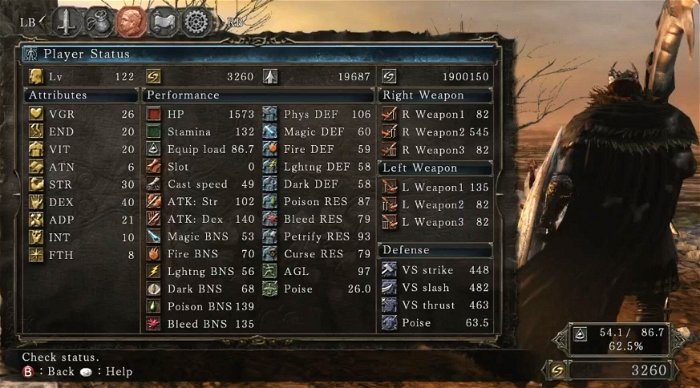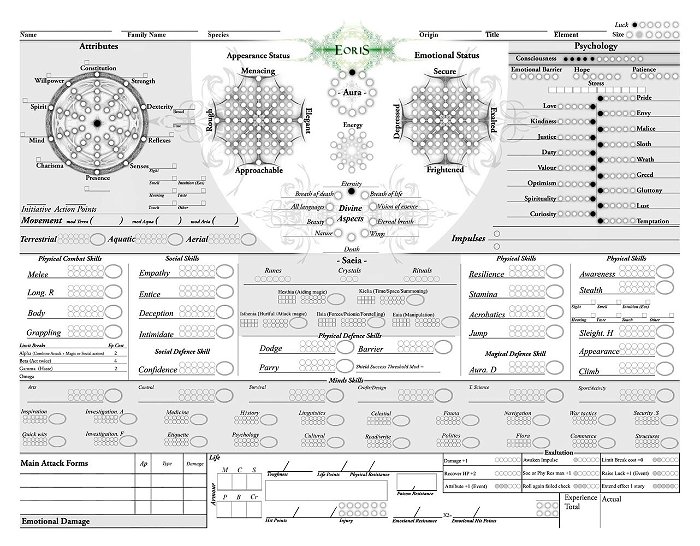I’ll be honest here, I don’t care for the story in a game. I always skip cut-scenes, and the only time dialogue interests me is what kind of benefit I get from choosing the right response. I don’t play RPGs as a form of escapism; my favourite aspect of a role-playing game is the stat screen. I’ll spend hours poring over the math and scrutinizing every weapon and piece of equipment to see what tiny percentage I can squeeze out of an item to increase my potential damage output. I was never an A student in high-school math, but when it comes to perfecting a character build I’m capable of rocket science. Forget being a well-rounded character capable of firing off spells AND swinging a long-sword, the player who has devoted all those precious skill points to a single discipline will usually kick your ass. Even if you spend the majority of the early game struggling, that tactical optimization of skill points and equipment is incredibly rewarding when you hit that point where it all pays off.
I miss the days of Diablo II when you had to commit to a path right from the get go. The frustration and regret of choosing the wrong upgrade is half the fun. While I certainly enjoyed Diablo III, the watering down of the required dedication by giving players the ability to swap skills on the go made the experience less enjoyable for me. Even when it comes to broader and more forgiving games like the Elder Scrolls series, if I choose the wrong race and realized hours into the game I could have had +3 fire damage instead of +1, it was time to start over again. Some gamers I know think this is ridiculous. Who cares if your attack rating isn’t the absolute maximum it could be? Can’t you just enjoy the game otherwise?
No, I can’t.
Thankfully, the fine science of min/maxing and powergaming is in full force thanks to games like Dark Souls and its wonderfully creative and punishing PvP system. It’s possible to cruise through the single player game with a jack-of-all-trades warrior/cleric/mage mashup, but the first time you get absolutely smashed by an invading player you’ll regret not specializing.
Let’s take a minute and define the term “min/maxing”. It basically boils down to dumping all your points into certain skills, while refraining from wasting those points on less desirable categories. Combine this methodology with the choosing of weapons and equipment that only increase those specific statistics and you are now min/maxing.
Back in the days of tabletop games like Dungeons and Dragons, this style of play was looked upon with disdain by players who enjoyed RPGs for the actual role playing and fantasy elements. Gamers who wanted to live out a fantastical adventure and got their thrills out of creating a story and personality for their characters were turned off by the dry, math heavy approach to playing that came at the cost of crafting an interesting and believable character with quirks and unique personalities… Especially when that approach allowed those players to build a character that was stronger and more powerful than anybody else at the table. It’s easy to see why playing with a person who spent the whole time looking at calculators and spread sheets would really take you out of the fantasy.

But for a highly competitive person like myself, it’s much more important to be better, stronger and faster than my opponents than it is to live out some suburban nerd fantasy of being a muscled barbarian or magic elf princess. This is why I’m such a huge fan of PvP in RPGs. The computer can always be exploited or worked around, but there is nothing like facing an actual human being in combat to really test out the effectiveness of your build.
So props to you fellow powergamers and min/maxers, don’t let anybody tell you that you’re missing the point of a role playing game if you’re spending all your time staring at a stat screen instead of “experiencing the rich lore and beautiful world the developers created.” They are the ones that will be throwing controllers across the room when you kill them over, and over, and over again.






